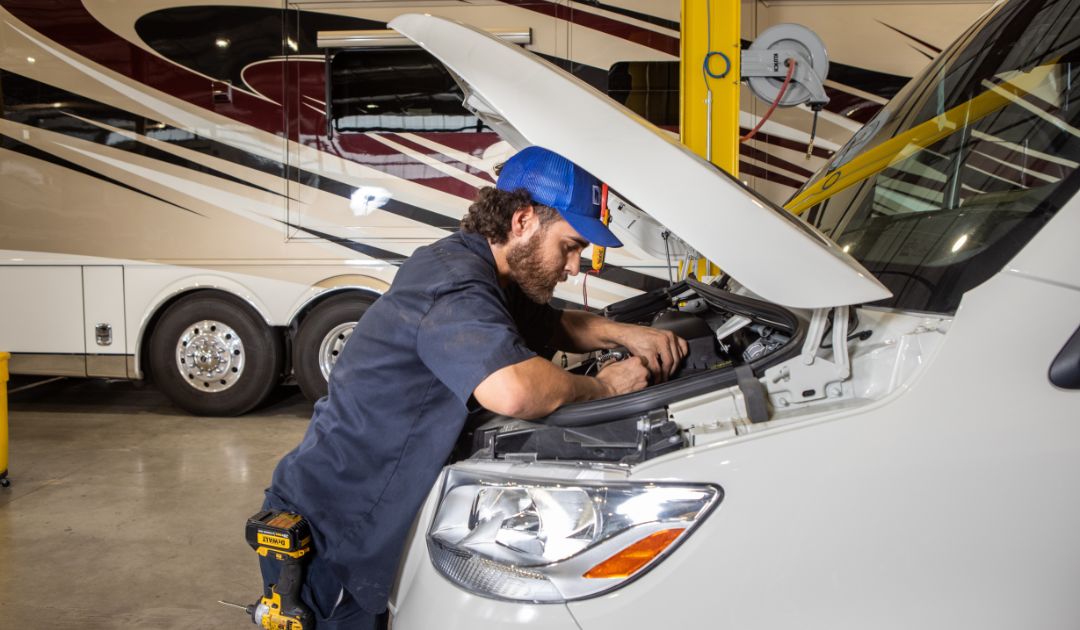RV Battery Maintenance: What You Need to Know
It should go without saying, but your RV’s battery is pretty important. To some degree, almost everything in your coach is powered by your RV’s battery, from the fridge to the TV. Of course, this includes all of the complex systems that allow your RV to drive in the first place. Any issues or disruptions to your battery can quickly derail an RV trip.
Let’s take a look at everything you need to know about keeping your RV battery happy and healthy.
Your Motorhome Actually Has TWO Batteries
Before we explore the nitty-gritty, it’s worth noting that your RV actually has two different battery systems: a 12-volt DC system and a 120-volt AC system. Additionally, virtually every motorhome also has a regular car battery that’s used to start the engine.
Like your air conditioner, major appliances and systems are run off of the 120-volt system. To use this battery, you generally need to be plugged into a shore power source or actively run a generator. These systems place a pretty heavy strain on your RV’s electricity use, which means they often don’t operate without a consistent charge on the road.
Meanwhile, the smaller 12-volt coach battery in your RV is responsible for running systems like interior lights and water systems. As opposed to its larger counterpart, this system can comfortably run without being plugged in—as long as it has enough charge!
There’s No Single Rule on How Long Batteries Last
If you’re driving a car like a sedan or SUV, then car batteries can generally be expected to last three years. In an RV, however, the lifespan of a battery depends on so many different factors that it’s impossible to give a general rule.
What’s more important than the age of a battery is how well it’s performing. Just like an old battery can function when properly maintained, a brand-new battery can experience issues fairly quickly if it’s not looked after. It’s always a good idea to check your batteries before you head out on an extended trip.
In addition, it’s also a good idea to clean battery terminals with a designated cleaning solution to remove any corrosion buildups. If your RV uses a flooded-cell battery, you’ll also want to top it off with distilled water and ensure it’s fully charged before cleaning it.
As a Rule of Thumb, Keep Your Batteries Charged
Actually, ensuring a fully charged battery is a good idea for ANY RV battery. Allowing your batteries to deplete increases their rate of sulfation, which you want to avoid. Sulfation, which happens when particles begin to corrode your battery, begins to occur once a battery falls below an 80% charge.
Letting your batteries consistently reach a low charge also decreases their overall life. For context, a battery that’s consistently kept above 50% charge will last more than twice as long as one that’s always allowed to drop to 20%.
Of course, overcharging batteries can overheat (and damage) them, so it’s a good idea to stop charging once a battery maxes out.
At NIRVC, we know how to maintain, service and replace RV batteries—we even offer competitive rates! Visit our service page to learn more!

